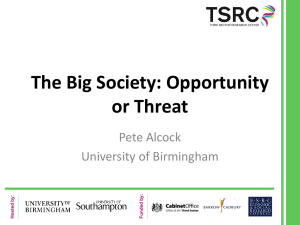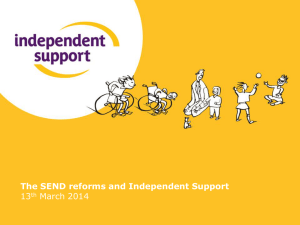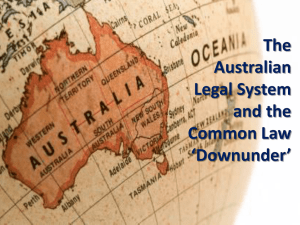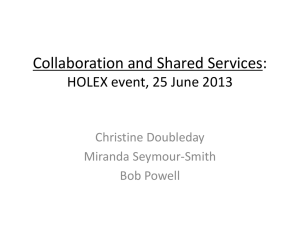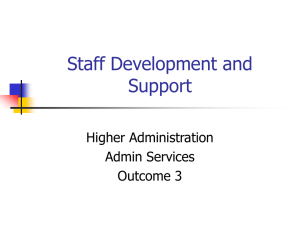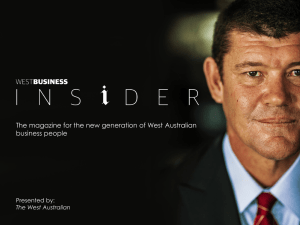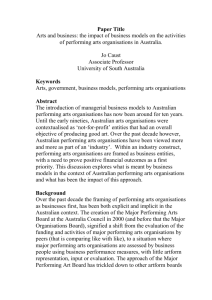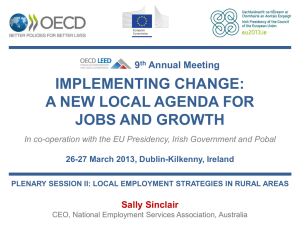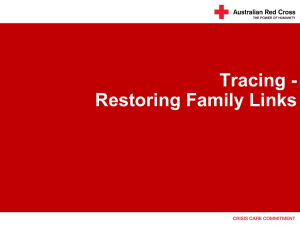Political action and decision making
advertisement
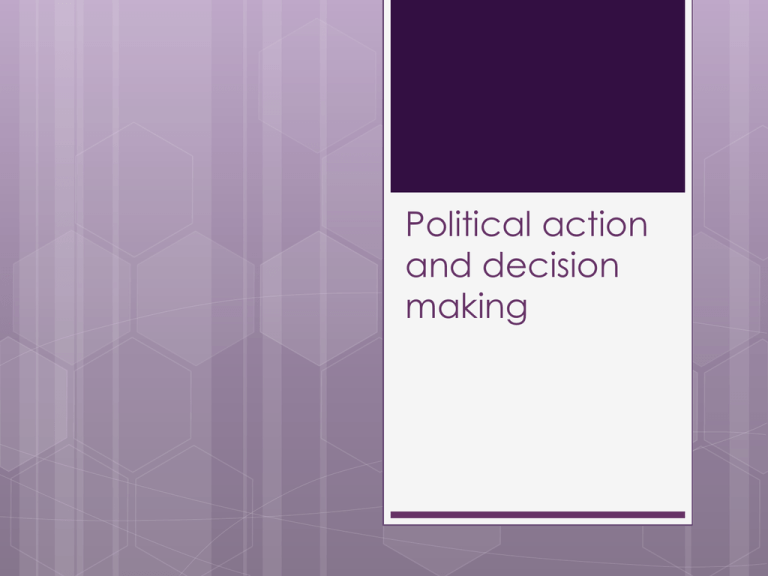
Political action and decision making Syllabus Political action issues that concern the community how to take action on political issues individual action political parties lobby groups Media Decision-making organisations which make decisions that impact on the community government organisations businesses welfare organisations media processes involved in decision-making Lingo List activist An individual who takes direct action, usually in support of, or in opposition to, one side of a controversial issue. current issues Issues that are of relevance and significance today. decree An order that usually has the force of law. direct action Action that is either planned or spontaneous; for example, marches and sit-ins. independent A member of parliament who does not belong to a political party. interest groups A group of people organised to further some cause or interest that they have in common. Also known as lobby groups and pressure groups. petition A formal, written request made to an official person or organised body and signed by people who are concerned about a particular issue. regulation A law made under the authority of an Act of Parliament. sit-in The act of sitting in the seats, or on the floor, of an institution or public place as a form of organised protest. trade union An organisation of employees that acts collectively for the mutual protection and assistance of the employees and is concerned with wages and conditions of employment Issues that concern the community While some issues will affect all Australians, others will be of interest to particular groups within Australian society. The issues of interest to Australian teenagers, for example, may be quite different from those affecting retirees Name 3 issues that might be of interest to teenagers, young adults (those in their twenties and thirties) and retirees Specific Issues May Include…. Teenagers May include: Access to permanent and part-time work the wage rates paid to young people, changes to rules governing the granting of a driver’s licence changes to the contribution people are required to make towards the cost of a tertiary education. Young Adults May include: the cost of housing, interest rates, employment security access to child care. And finally… Retirees May include: Pension paid by the government Tax on superannuation Official retirement age Taking action on political issues When there is an issue that you feel strongly about there are a number of actions you can take to influence decision-making processes. These include: joining a political party, taking individual action, becoming an activist in an interest group contacting the media. Political parties A political party is an organisation of people with similar ideas or philosophies. The aims of such organisations include the development of policies that the party believes will appeal to voters. When Australian citizens vote for a political party, they usually choose a party that they believe reflects their ideas and beliefs. In Australia there are more than 40 political parties Individual actions Individuals can influence decision-making processes. For example: write or meet with their local member of parliament or councillor (a representative on the local council) write a letter to a newspaper phone a talkback radio program. engage in direct action (protests and demonstrations, such as sit-ins), but must be careful not to break any laws. Importantly every Australian citizen has the right to stand for election Lobby Groups A Lobby group is a group of people who lobby (or seek to influence the opinions of politicians) by presenting them with information on political issues They are composed of people who unite in an attempt to change government policy on a particular issue E.g. a lobby group may form to preserve an area of bush land or to stop a new airport being built at Badgery’s Creek Media The term media refers to the all the different ways information can be widely distributed. It includes: Print media – newspapers & magazines Electronic media –radio & tv Internet – as an interactive form of media Media can reach local, state or national or international audiences The independence of media is an important aspect of a democratic country Decision Making Organisations That Make Decisions That Impact On The Community In a democratic society, such as Australia, decisions affecting communities are made by a range of organisations Government Organisations Governments, at all levels, make decisions which impact on our daily lives. Only decisions that create new law or endorse government spending need to be brought before parliament and the Queen’s representative. Some decisions can be made by regulation or decree E.g. Australia’s decision to support the US invasion of Iraq in 2003 did not need to be endorsed by the Australian Parliament. The decision to commit Australian troops to war was taken by the Prime Minister and Cabinet. The funds used to finance Australia’s commitment were drawn from the defence budget already passed by parliament. Businesses These decisions can also impact on our daily lives. For example, a decision to invest in a new factory will help to create new jobs. A decision to close or relocate a factory will increase unemployment in a community. The way a business is conducted will affect its workforce and the community in which it is located. If the company is a good corporate citizen these impacts are likely to be positive. A bad corporate citizen may exploit its workers, pollute the environment and care little about its broader community responsibilities. Welfare Organisations With one in five households living on less than $300 a week (most of which is made up of government welfare payments) welfare agencies play an important role in the life of many Australians. Many welfare agencies distribute assistance to the poor and needy. Some of this money is donated by members of the community, but the majority comes from government Government sees welfare organisations as being well placed to distribute assistance to those most in need. Welfare organisations also lobby governments to secure a better deal for the poor and disadvantaged. The main supporter of low-income and disadvantaged people in Australia is the Australian Council of Social Service (ACOSS) In 2010, an estimated 2,265,000 people or 12.8% of all people, including 575,000 children (17.3% of all children), lived in households below the most austere poverty line. This is set at 50% of the median (middle) disposable income for all Australian households. In the case of a single adult, in 2010 this poverty line was $358 per week. In the case of a couple with two children it was $752. Media The editorial decisions made by the media help to shape public discussion and debate−the issues we talk about. By highlighting some issues and ignoring others the media can influence the decisionmaking processes of government. If the media emphasises law and order as an issue, for example, a government may respond by increasing police numbers and the length of prison sentences. Processes Involved In Decisionmaking An important part of living in a democracy is that we, as citizens, have the right to speak up about issues that concern us. Not only can we freely voice our opinions, we can also do something about changing the situation if we can persuade a majority of people to support our point of view. Alternatively, we are free to protest if the government does something (or proposes something) that we disagree with. We can undertake political action in order to make things better or to prevent them from getting worse. By engaging in political action we hope to influence the decision-making processes of those who represent us. In Summary When there is an issue that you feel strongly about there are a number of actions you can take to influence decision-making processes. These include: Joining a political party, Taking individual action, Becoming an activist in an interest group Contacting the media.

